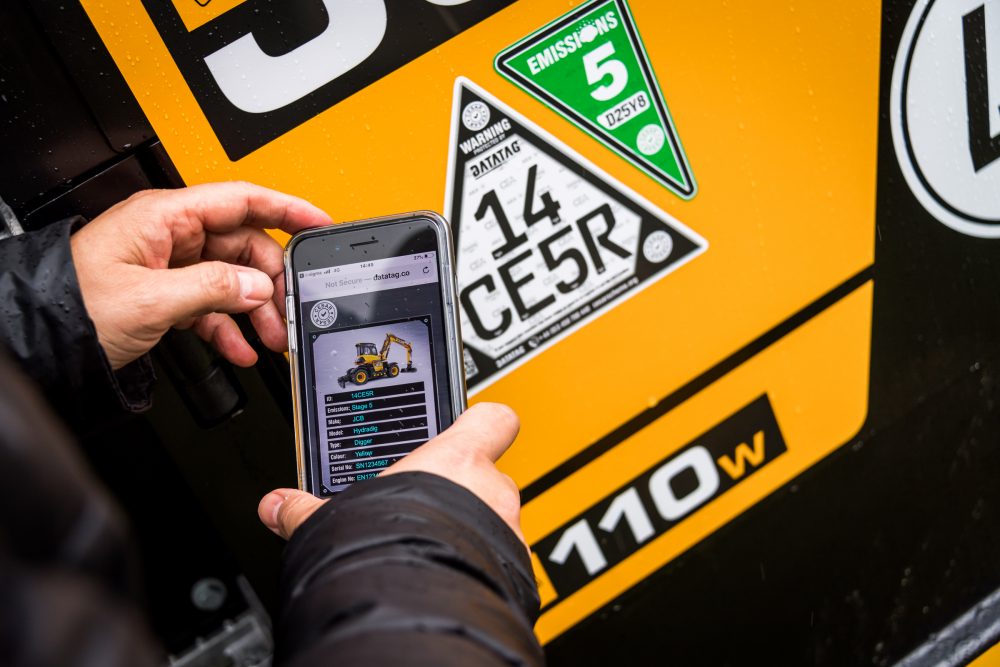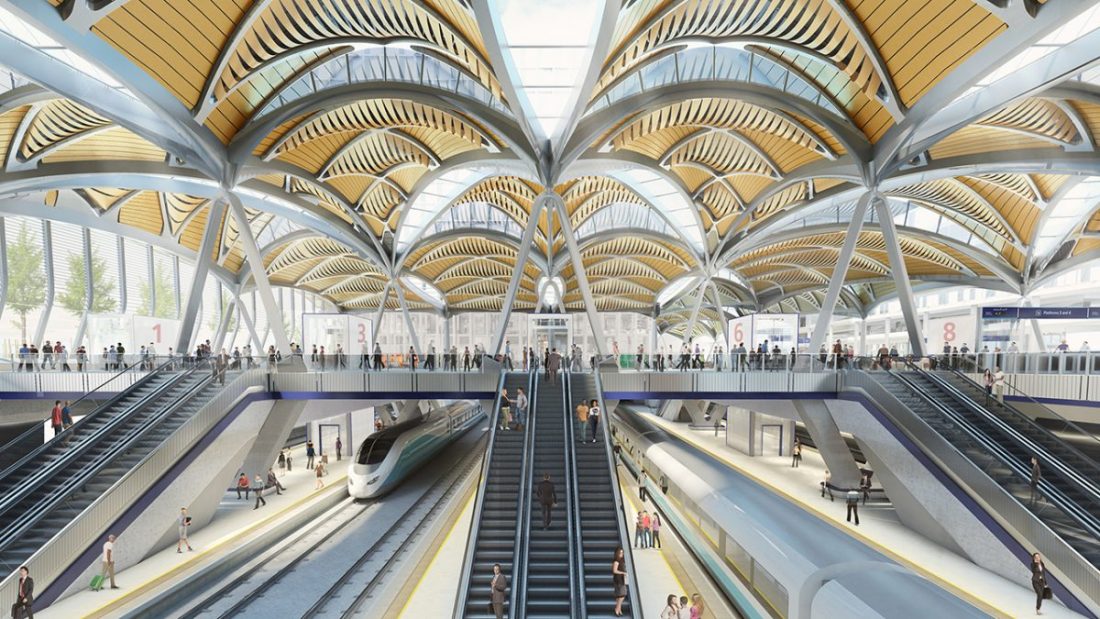HS2 adopts CESAR ECV plant emissions scheme to promote clean air
As part of its bid to create ‘greener’ construction sites, by reducing emissions and controlling air quality, HS2 is the first infrastructure project to adopt CESAR ECV – a new advanced emissions identification scheme.
Over the last year, HS2 has played a key role in helping the Construction Equipment Association (CEA) to develop the Emissions Compliance Verification (ECV) scheme and is now encouraging the industry to get on board. The ECV system fits with HS2’s Air Quality Strategy, which sets strict emission requirements for both on- and off-road vehicles and plant.
The new CESAR ECV system is a ‘bolt-on’ product, complimenting the existing CESAR security system, which allows quick and easy verification of a machine’s emissions category and helps ensure that emissions from plant is reduced where it cannot be avoided.

A unique colour-coded label fitted to each machine carries a QR code that provides full emissions data, bringing major time and cost savings, better reliability, and giving assurance to local authorities and the public that the strict emission requirements are being met, which is of particular importance on high-profile projects such as HS2.
The CEA is working with its technical delivery partners, Datatag ID, to deliver the technology behind the ECV Scheme, which powers the database and online portal.
There are also significant health and safety benefits using the CESAR ECV scheme, which allows for quick confirmation of a machine’s emissions by sight, whereas previously an operative had to look under the bonnet to find the engine plate to confirm compliance. During site inspection audits, where machinery is in use, this currently means that the machine has to be stopped and cooled before an inspector can confirm its compliance, which involves costly down-time.
HS2 is currently recommending the use of the scheme to contractors and supply chains across the project, and a number of contractors are already talking to the CEA about adopting the new scheme.
OEMs JCB and Hitachi Construction Equipment have also recently approved the scheme and are now factory fitting the system as standard to all its machines in the UK and Ireland.
HS2’s Phase One Air Quality Lead Andrea Davidson said: “As the country’s largest infrastructure project, we have an opportunity to work with our partners and supply chain to create a greener way of designing and building the new railway. Environmental innovations are at the heart of everything we do – from reducing carbon emissions and using renewable energy on sites; to including eco-friendly features in our designs, creating hundreds of new wildlife habitats along the route, and helping Britain reach our 2050 net-zero carbon emissions target.
It’s also important for us to provide assurances to local authorities and the public that we’re reducing emissions, tightly monitoring air quality and maintaining national air quality standards. The CESAR ECV system is one of many innovations we are supporting, and it’s now our job to embed it in the industry by encouraging our suppliers to use the new scheme as a tool for compliance assurance across all our sites.”
Rob Oliver, Chief Executive of the CEA said: “At the start of 2020 I felt it was going to be a big year for focusing on air quality issues in and around construction. Partly because construction equipment has a great record in reducing potentially harmful emissions and we needed to underline our success story. Partly too because there is some great environmentally friendly technology coming through that the sector needs to know about.
Now we have all had a taste of the world of lockdown with reduced road travel, we are that little bit more conscious about the quality of the air that we breathe. The ECV initiative builds on a stunningly simple idea that those concerned with monitoring air quality need an easy and visible pointer to the rated emissions of machines on their construction sites. There is no bigger site than the national ribbon of development that is HS2, who have shown great interest in ECV since the get go.”

HS2’s involvement in the development of the scheme included highlighting the time and cost savings, as well as the health and safety benefits of checking engine plate numbers. HS2 also provided advice on overcoming challenges regarding retrofit, hybrid and electric equipment, looked at on-the-ground practicalities of the scheme on construction sites, gave input into the design, and has been at the forefront of promoting the scheme to the supply chain and national bodies.
HS2 has set strict emission requirements for both on- and off-road vehicles and plant. This includes compliance with strict emission requirements for all on-road vehicles including lorries, vans and cars, as well as all Non-Road Mobile Machinery including excavators, dumpers, diggers, etc. These requirements are currently set above the Greater London Authority (GLA) requirements and are extended across Phase One of the project. HS2 is the first project to assign these strict emission requirements for NRMM outside of London. It also requires that all works on the project comply with strict emission requirements for all on-road vehicles including lorries, vans and cars.
Initial feedback from HS2’s suppliers on the CESAR ECV scheme has been very positive.





























